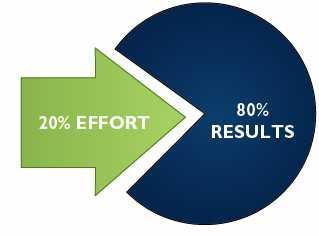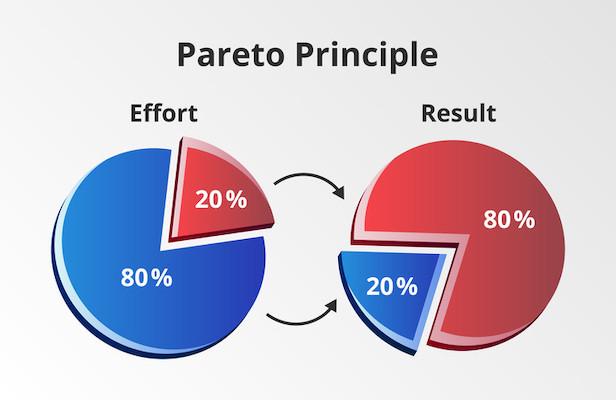Introduction
The 80/20 principle (aka the Pareto principle) states that 80% of the results come to form 20% of the cause. A few things are important; most are not. He notices that a tiny number of pea pods in this garden produced the majority of the peas. At the time, Pareto was studying wealth in various nations. As he was Italian, he began by analyzing the distribution of wealth in Italy. To his surprise, he discovered that approximately 80 % of the land in Italy was owned by just 20 percent of the people.
24
229 reads
The idea is part of this collection:
Learn more about artsandculture with this collection
The history of fashion
The impact of fashion on society
The future of the fashion industry
Related collections
Similar ideas to Introduction
The Pareto Principle
... or the 80/20 principle was coined in the early 1900s by Vilfredo Pareto, an Italian economist. He observed that the pea pods in his garden were producing peas at this rate. 20 percent of the pea pods produced 80 percent of the peas. This output was then observed by him on a larger sc...
Living the 80/20 Life
The 80/20 rule, also known as the Pareto principle, states that we need to focus on the few things that get us the most benefit.
For a lot of events, approximately 80% of the effects come from 20% of the causes. So pick the 20% of your tasks that yield 80% of the results and outsource...
3. Apply the 80/20 Rule to Everything
The Pareto Principle or 80/20 Principle says that 20% of your activities will account for 80% of your results.
Resist the temptation to clear the small tasks first; instead, start your day by asking, “Is this task in the top 20% or bottom 80% of my activities
Read & Learn
20x Faster
without
deepstash
with
deepstash
with
deepstash
Personalized microlearning
—
100+ Learning Journeys
—
Access to 200,000+ ideas
—
Access to the mobile app
—
Unlimited idea saving
—
—
Unlimited history
—
—
Unlimited listening to ideas
—
—
Downloading & offline access
—
—
Supercharge your mind with one idea per day
Enter your email and spend 1 minute every day to learn something new.
I agree to receive email updates

